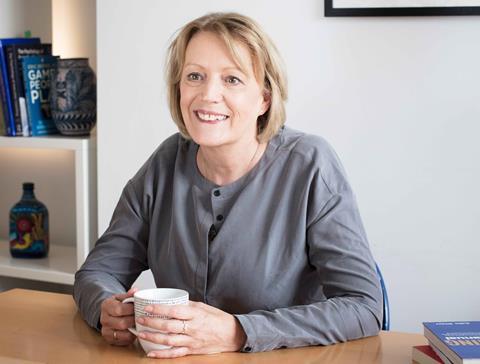Talent and experience are important, but generosity creates the foundation for great leadership, writes Louise Rodgers

“I’ve never found that my own light has been dimmed by lighting someone else’s candle,” said the late, great designer Zeev Aram.
I first heard this quote from Paul Monaghan of AHMM when my co-host Rachel Birchmore and I had a conversation with him on the theme of generosity for our podcast Coaches On The Couch, and it is one that stayed with me.
We were talking to Paul about generosity because it is a rarely discussed leadership quality, and one we thought he would know something about. Many of the architects we both work with, or know, started their careers at AHMM and remain on good terms with Paul and his fellow founders.
Generosity should be present in every one-to-one or mentoring session, and every time we delegate or lead a problem-solving discussion. In fact, I increasingly think that not only is it a key quality for leadership but may even be the key quality, distinguishing a good leader from a great one.
But what does it mean to be a generous leader? It is about more than sharing knowledge and giving other people credit for their ideas. It also entails giving them latitude, permission to make mistakes, and all the information they need to do their job to the best of their ability.
Perhaps above all generosity is about resisting the temptation to step in and fix something when you think you see a different, better, way of doing things. This is deceptively hard to do and takes great self-control.
This behaviour can be confused with kindness; we see someone struggling and it makes us uncomfortable, so we think it is both kind and expedient to jump in and sort out whatever they are struggling with. In the process we forget that we are effectively denying that person the opportunity to learn, and even sending a subliminal message that they aren’t good enough. Which can have the very opposite effect to confidence or capacity building.
Generosity goes hand-in-hand with curiosity. When we are curious about something or somebody, we give them the gift of our attention. This can mean making time to understand why someone has taken a particular approach to solving a problem; why they have designed something in a certain way; what their thought processes were when they are doing it.
It’s much easier to be the person who steps in with the answer, especially if we both feel the need to ‘rescue’ the other person and are more comfortable being the ‘expert’ in the room. But, as writer and coach Michael Bungay Stanier says in his book The Advice Trap, the advice we often give with the intention of being helpful, may not be nearly as good as we think it is. It may even be counterproductive.
Bungay Stanier talks about ‘generous silence’ and outlines three stages of using this as an effective tool. The first is to push through the deep anxiety that silence brings and resist the temptation to fill it any cost. If you can do this, you edge into a place where you are willing to try silence, but all the while holding your breath as if you are sitting on the edge of your chair. The third, sweet, spot is the place you reach when you can offer generous silence, welcoming the silence as a place of comfort and warmth.
None of this is easy. Many of us struggle to get through the deep anxiety that silence can give rise to.
It’s much easier use the excuse of our greater experience and knowledge to step in.
But if we can provide ‘generous silence’ we are providing space for the other person to be with their own self. “It allows them to take a breath,” says Bungay Stanier. “It whispers, ‘This is an interesting place to be. Let’s hang out here for a moment’.” It may only be a few seconds, but during those few seconds, an important insight may emerge.
Sometimes the best way to light that candle is to say nothing.
Postscript
Louise Rodgers is Building Design’s professional coach. A personal and business coach, she co-created and co-delivers Step Up, a leadership development programme for architects.
The anecdote at the start is taken from a new book by Rodgers and Rachel Birchmore based on interviews for their Coaches On the Couch podcast with leaders on what they have learnt from lockdown.
















No comments yet